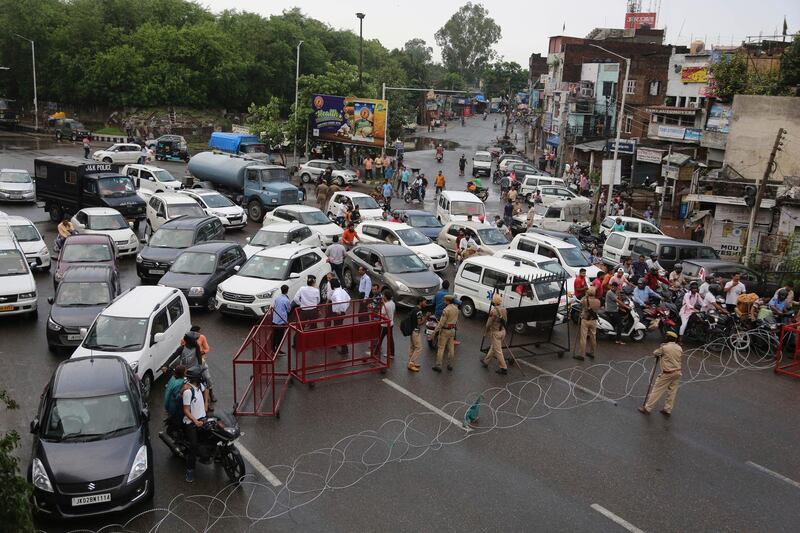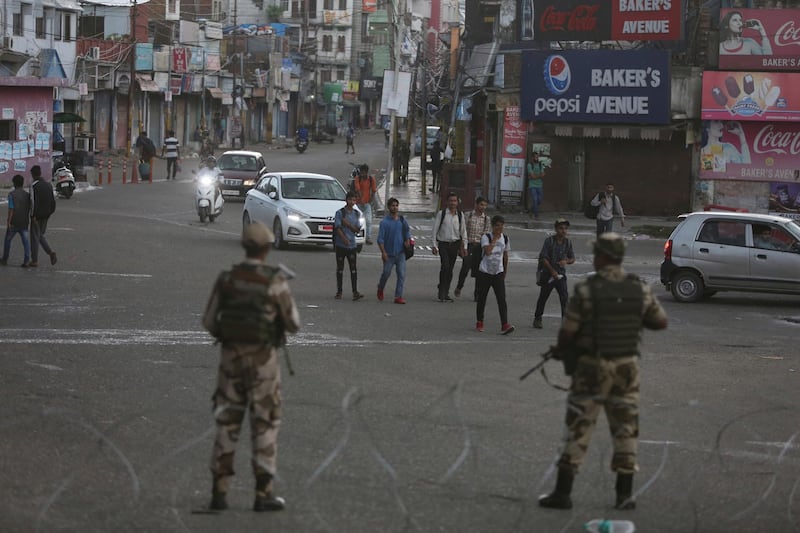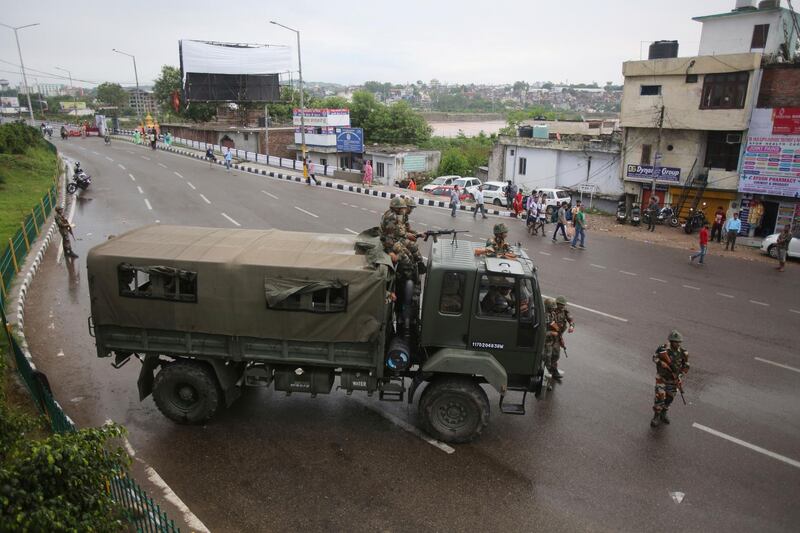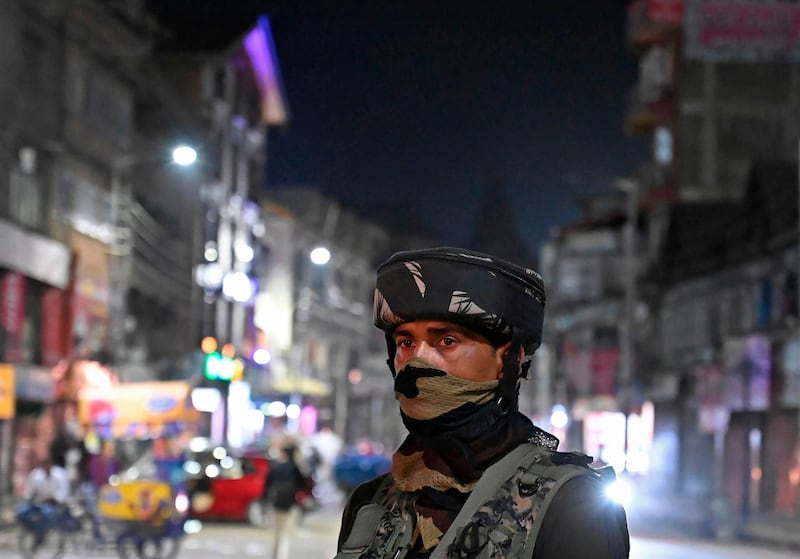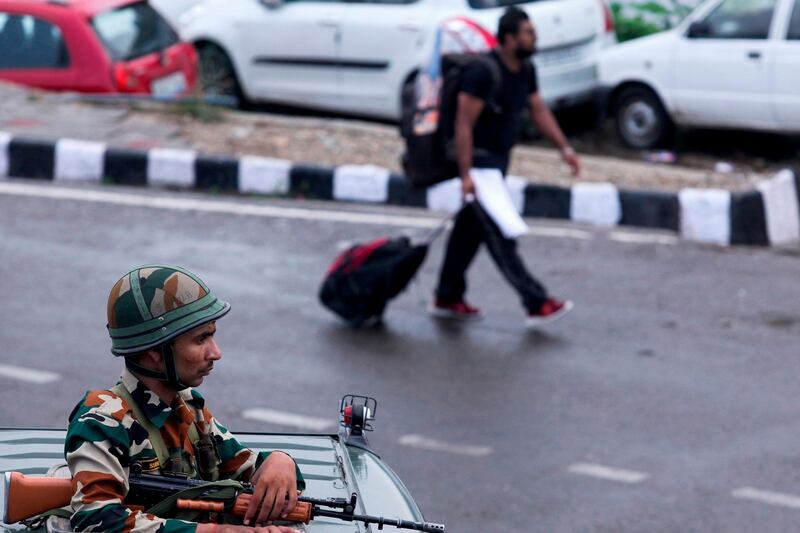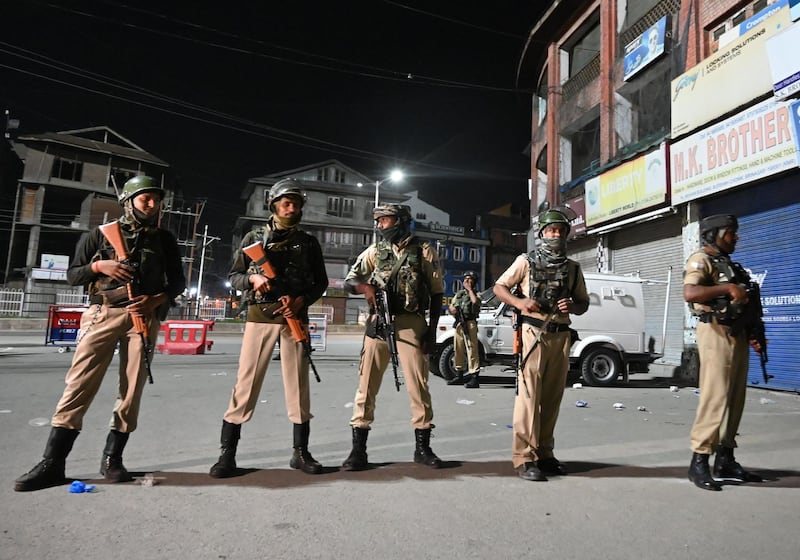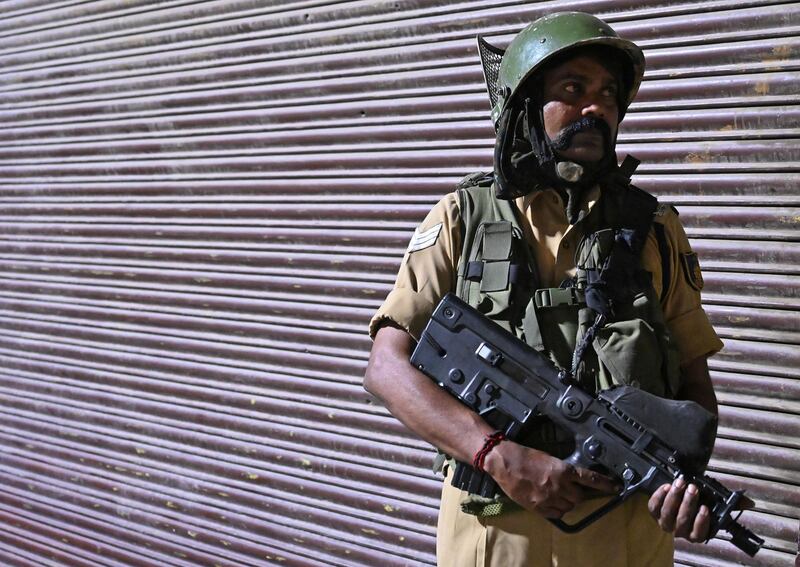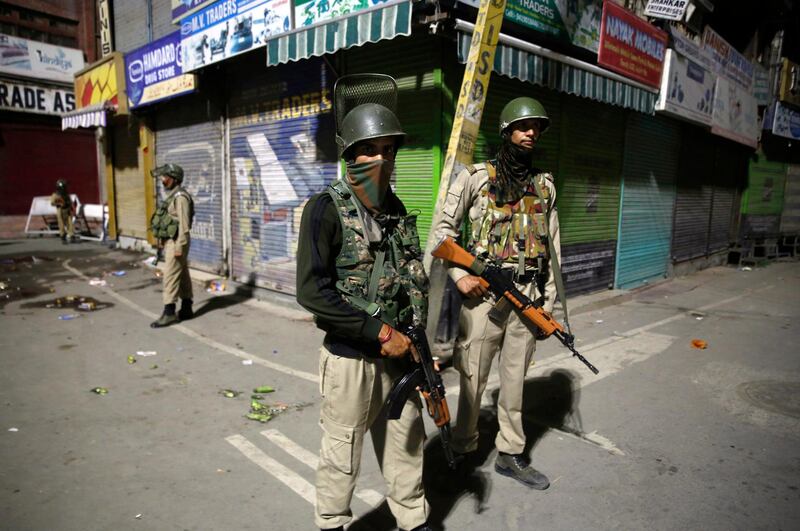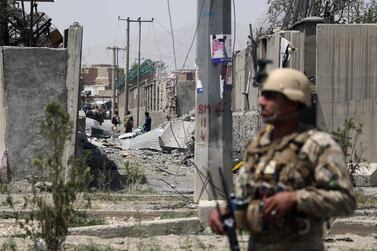On Sunday night, Zahoor Ahmad's house in downtown Srinagar was lit up as the family celebrated his sister's engagement.
But Mr Ahmad, 35, who waited a long time to see his sibling happy, was racked with worry, fearing what the morning might bring.
Srinagar is the capital of Jammu and Kashmir, where tension between India and Pakistan has soared. Each country claims the region in its entirety.
Alerts were issued on Friday advising all tourists and Hindu pilgrims to leave the state.
Thousands of extra troops were sent after India used a presidential order to end the state’s special constitutional status.
An indefinite security lockdown was put in place in the Indian-controlled part of Kashmir, confining millions to their homes.
Authorities suspended many internet, TV and mobile phone services, leaving most residents with no connection to the outside world.
About midnight in Srinagar, government forces put up steel barricades and razor wire on the roads. The government issued a security order banning public meetings and rallies, and said schools would be closed.
At a Srinagar tea shop, a young boy rushed in to announce that Jammu and Kashmir state was “union territory now", meaning the end of its special status would place it fully under Indian control.
The new rules stripped India’s only Muslim-majority state of its right to govern itself and put it under New Delhi rule.
Tears followed from those near by.
A law stopping citizens from other states buying land in Jammu and Kashmir will also be scrapped, meaning the way of life there could change drastically.
Supporters of Prime Minister Narendra Modi's Bharatiya Janata Party and its allies celebrated the announcement, which is regarded as their latest push to greater Hindu nationalism.
The BJP has long resented Article 370, the constitutional clause stipulating that laws passed by India's Parliament did not apply to Jammu and Kashmir unless the state's government approved them.
But residents of the state – including society and opposition leaders, and separatists – are united in their criticism of the decree.
"It cannot happen," an elderly resident said, turning to a passer-by. "They cannot do this, it is unconstitutional. Surely it is just a rumour."
Curfews were announced from government vehicles that patrolled the streets on Monday morning, warning citizens not leave their homes.
Indian government forces poured on to Srinagar’s streets, taking over schools, courts and marriage halls in the city. The press was muzzled.
But the curfews left residents in remote areas without access to health services, while those discharged from hospitals were unable to go home.
At Lal Ded Maternity Hospital, families worried about what the changes announced by New Delhi meant for babies being born
The joy of giving birth was quickly overshadowed by a feeling of hopelessness for Gulshan Jan, 30, a resident of Kupwara in northern Kashmir.
"We were released by the hospital but because of the curfew, we cannot go home or call anyone to pick us up," Ms Jan said. "We can't afford a cab."
Ali Mohammad, from southern Kashmir, who spent the past week at the hospital with his eldest sister after she went into labour, was unable to buy the medicine she needed because the ATMs had run out of cash.
"I saw a man begging for money for his children's treatment," Mr Mohammad said.
Dr Sabreen Wani, 27, who has been employed by the hospital for 18 months, said that the central government's hasty move was making every institution in Kashmir suffer.
Dr Wani said the communication blackout was causing people to panic.
"We've received no guidelines from the government on how to tackle situations," she said.
“They didn’t address the people of Jammu and Kashmir about their plans to revoke their rights. They just imposed a curfew on us.”
By Monday evening, Mr Ahmad bid farewell to his sister as she returned to her home.
Engaged in the semi-autonomous state of Kashmir, the status of the place in which she will marry is as yet unknown.
